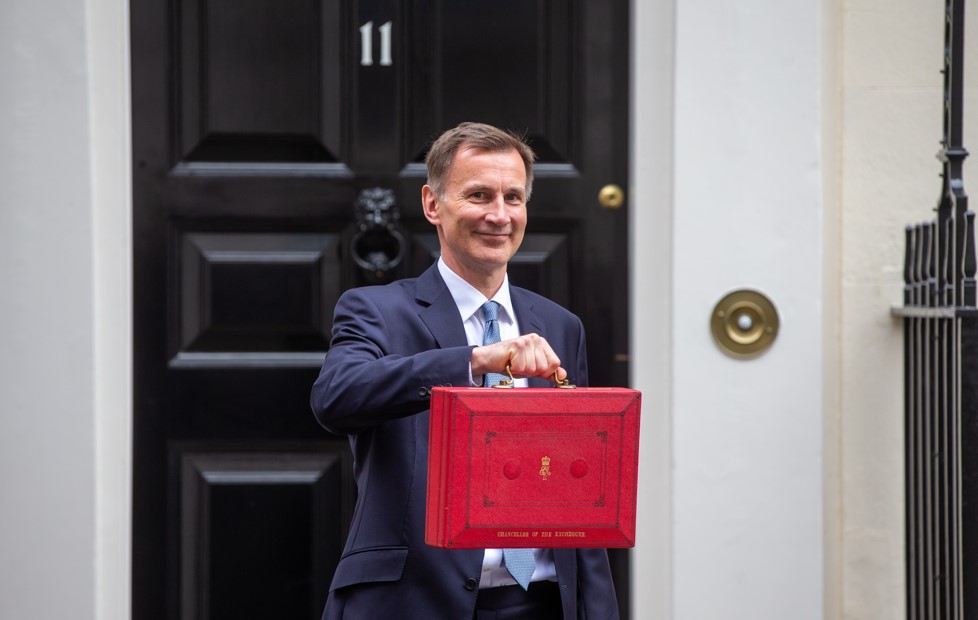After a year-long crash course into how to undermine confidence in UK politics, Jeremy Hunt’s 2023 Spring Budget was designed to reassure the UK public and wider world that storm is behind us, the sails are set, and our course has been carefully plotted. This was therefore a budget without dramatic changes in direction, but one that was mindful of the need to support the UK in its most fragile areas.
The chancellor framed his hour-long budget around four pillars – the four E’s of Enterprise, Employment, Education and Everywhere. This provided an initial flavour of his intentions, and we have summarised some of the main components of the content below.
Economic Forecast
- The OBR (Office for Budget Responsibility) predicts the UK will avoid recession in 2023, but the economy will shrink by 0.2%.
- Economic growth predicted of 1.8%, 2.5% and 2.1% over the following years (2024 to 2026).
- Inflation in the UK to shrink to 2.9% by the close of 2023, down from 10.7% the year before.
- Government debt forecast to be 92.4% of GDP in 2023, rising to 93.7% in 2024.
3 Hard Hitters
- The Energy Price Guarantee. This will remain at £2.5k but only for another 3 months.
- Pensions reform. This attempts to keep people in work for longer, but it will be met with controversy given the potentially huge tax break it hands to the most wealthy.
- Childcare support. Big support is being rolled out to the childcare industry and parents of young children in an attempt to remove barriers to work and bolster the workforce.
Taxes & Business
- The annual pensions tax free allowance is to be increased to £60k from £40k, meaning more can be contributed annually tax free.
- The Lifetime Allowance has been abolished, removing the £1.07m cap on tax free pension pots. This is an attempt to keep higher earners in work for longer, as the previous cap had incentivised those who breached it to leave the workforce (notably doctors).
- Fuel duty. This has been frozen for another year.
- Alcohol duty. Duty on draft products to be reduced (by up to 11p) to support British pubs.
- Corporation Tax. The existing plans to increase the current 19% rate to 25% will go ahead for companies with profits in excess of £250k.
- Capital Allowances. Investment in new machinery and technology will be deductible in full in the year of purchase, regardless of its size. This is in response to the super-deduction coming to an end on 31st March 2023.
- Investment Zones. Tax breaks and benefits will be available for 12 new Investment Zones across the UK, equating to £80m per site over the next 5 years.
- Income tax thresholds. There will be no change in income tax thresholds, meaning the effects of inflation will force more people into higher rates of tax (referred to as a stealth tax).
Energy
- Subsidies that limit average household electricity bills to £2.5k per year have been extended for a further 3 months, but will end come the beginning of July.
- The existing energy bill relief scheme for businesses will end at the end of this month, with no further support offered.
- £63m of support announced for leisure centres to tackle the increased cost of facilities such as swimming pools.
- £20bn commitment over the next 20 years on low-carbon projects focussing on carbon capture and storage.
- Reclassification of nuclear energy as environmentally sustainable – providing an indication of the governments focus for future energy generation.
Jobs
- 30 hours of free child care for working parents to be rolled out in stages for 1 and 2 year olds from April 2024, standing to save a yearly average of £6k for each child in full time childcare.
- Incentive payments of up to £1.2k for those looking to become childminders, and a relaxing in the number of minders per child.
- £63m support for programmes to encourage retirees back to work.
- Rules on immigration to be relaxed in the construction sector to fill vacancies.
Other Commitments
- Defence spending to be increased by £11bn over the next 5 years. This will equate to 2.25% by 2025 with a commitment to raise this to 2.5% when “fiscally possible”.
- Reform and streamlining of regulation and processes surrounding medicines and medical technologies, to further bolster the UK’s competitiveness in this industry.
- Assistance for the UK’s Artificial Intelligence (AI) industry, including £900m for a new supercomputer facility.
- Prison sentences for marketers of tax avoidance schemes.
- £200m in additional support for local councils to tackle potholes.




